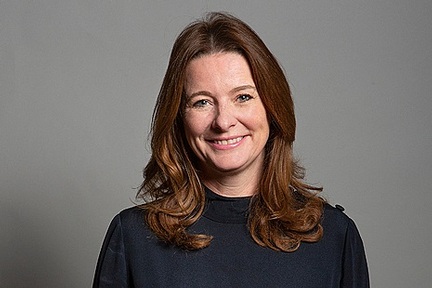Relative calling for unrestricted care home visits tells minister: 'You don't get it Gillian'
Care minister Gillian Keegan has been accused of being "cold-hearted" and dismissive, after turning up late for a meeting with families campaigning for a law to allow unrestricted care home visits from a care supporter.

Government guidance states all care residents should be allowed to have an essential care giver who can even visit during Covid outbreaks but family members have told the care minister that some care homes are not following the guidance.
Campaign groups Rights for Residents, John’s Campaign and the Relatives & Residents Association met the care minister and around 30 MPs from different parties in Westminster on Wednesday, 9 March to gather support for Gloria’s Law.
Gloria’s Law is named after actress Ruthie Henshall’s mother, who died in a care home during the Covid pandemic, and it calls for the legal right to give anyone who needs care access to a ‘care supporter’. This is a relative or friend who can help them wherever they need it, such as in hospitals, care homes or GP surgeries.
’She literally sucked the life out of the room’
MPs including Labour's Yvette Cooper listened to the heart-breaking stories of relatives whose loved ones were in care homes during the pandemic and many politicians were visibly moved.
“Gillian Keegan didn’t come until the final 15 minutes [of the meeting] so she didn’t hear the personal stories”, Diane Mayhew, co-founder of campaign group Rights for Residents, told carehome.co.uk.
“After hearing those stories, there was energy in the room. MPs were energised to act. But when the minister came in, she literally sucked the life out of the room.
“It was quite cold-hearted. She said the majority of care homes are following the guidance, but there are some that are not.
“She kept saying ‘I get it, I get it’ but I told her ‘you don’t get it Gillian’.”
Ms Mayhew told carehome.co.uk that the absence of a law that would enable family members access to relatives in care and hospital settings meant she was barred from seeing her own father when he died of Covid in hospital last April.
“I lost my father who died of Covid and no one could be with him”, Ms Mayhew said. “Later, I was diagnosed for PTSD because I was getting flashbacks of having to wait to find out from the hospital whether or not my father had died and I couldn’t even see him.”
Families spoke of how their loved ones deteriorated and some stopped eating or even speaking, after they could not visit them during the pandemic.
Boris Johnson agrees to discuss Gloria's Law
Despite the care minister’s response, Ms Mayhew has hailed the meeting a success because a large cross-party group of MPs have agreed to push for Gloria’s Law.
Immediately after the meeting, Labour MP Peter Dowd raised the issue of Gloria’s Law with Boris Johnson during Prime Minister’s Questions on 9 March.
He told Mr Johnson: "I've just been to a very harrowing meeting." In response, Mr Johnson agreed to meet with Mr Dowd to discuss Gloria’s law.
Mr Johnson told the Labour MP during PMQs: "Everybody understands the anguish of people who haven't been able to see their loved ones."
Campaigners have the support of a number of care homes groups who are backing Gloria’s Law. Over 30 organisations including care home owner Mencap, Mind, Healthwatch England and Disability Rights UK support Gloria's law.
Conservative MP Tracey Crouch and Labour’s Hilary Benn were among the MPs who told campaigners they had been convinced to support a new law.
Tracey Crouch said: "Over the past two years, we’ve seen the devastating impact of people being isolated in health and care settings. We must recognise in law the crucial role family carers play in the lives of people in vulnerable situations. Access to a ‘care supporter’ should become a routine, key ingredient for good care, which one day any of us could need.”
Latest News
 29-Jul-24
Dementia Bus gives carehome.co.uk staff insight into life with dementia
29-Jul-24
Dementia Bus gives carehome.co.uk staff insight into life with dementia
 01-Mar-24
Find out the top care homes in 2024
01-Mar-24
Find out the top care homes in 2024
 21-Mar-23
UK's top care homes in 2023 revealed
21-Mar-23
UK's top care homes in 2023 revealed
 03-Jan-23
carehome.co.uk launches free care helpline
03-Jan-23
carehome.co.uk launches free care helpline
 13-Dec-22
5 mins with Emily Whitehurst, chief operating officer for Constantia Healthcare
13-Dec-22
5 mins with Emily Whitehurst, chief operating officer for Constantia Healthcare